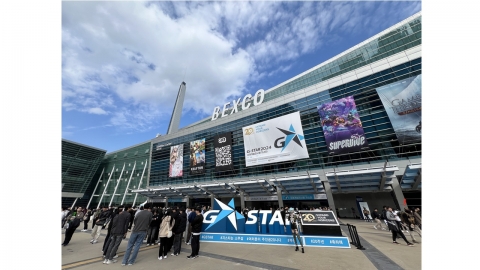[Start Economy] 'Strongest Power' Musk Pushing Dogecoin 'Expanding' Influence In All directions
■ Host: Anchor Lee Jung-seop, Anchor Cho Ye-jin
■ Starring: Professor Lee Jung-hwan, Hanyang University School of Economics and Finance
* The text below may differ from the actual broadcast content, so please check the broadcast for more accurate information. Please specify [YTN News START] when quoting.
[Anchor]
We give you the latest economic news quickly and kindly. Start Economy, today with Lee Jung-hwan, a professor at Hanyang University's School of Economics and Finance. Welcome, professor. Let's first talk about Elon Musk, who is considered the biggest contributor and the biggest beneficiary of the U.S. presidential election, and now he has joined the Trump administration. You've become the head of the new department, what department is it?
[Lee Jung-hwan]
Just because this is the Ministry of Government Efficiency, there are generally the Ministry of Strategy and Finance and the Ministry of Industry in Korea, but it is not this real wealth, and it cannot be said to be an organization of the government. It's a committee, so you can understand that it's named Boo. Nevertheless, there are opinions that the Trump administration will actively come up with guidelines through the committee called the Ministry of Government Efficiency because it is moving under the Trump administration's stance that it will play a big role, pro-business sentiment, and deregulation in the end. So, since the reports from here are bound to have an impact on workforce reduction, wouldn't it be related to the various steps Musk is trying to take, such as making satellites or doing spaceships? In the end, I think it will be concluded through the Ministry of Regulatory Efficiency so that Elon Musk can be involved in industrial policies and regulatory policies. In the end, the guidance of the Ministry of Regulatory Efficiency affects the government. It can be understood that influencing the government is this field that can affect the various corporate activities that Elon Musk is doing right now, so some are concerned and some are expecting it to go well.
[Anchor]
But the two of them didn't get along well. Why are you so close all of a sudden?
[Lee Jung-hwan]
Elon Musk himself is saying that I'm not an expert here, but basically, the Republican and Democratic parties were not so politically divided. In 2016, there were relatively many Democrats in Silicon Valley, supporting Hillary Clinton, basically. I supported it because there were many, but since the 2017 presidential election, Trump became president, so I went to Trump's government committee and worked. Since I've also been active, I basically don't have much stability. Recently, however, there have been many opinions that they did this because of their antipathy toward the Biden administration. Like Ford, Tesla's rival right now, GM. There are many opinions that Musk was very disappointed as the Biden administration pushed the Rust Belt auto industry too much. Subsidies are moving toward GM or Ford, and trying to foster the industry, there was a perception that Tesla was left out as a company that is more advanced in eco-friendliness, and such perception had a significant impact on supporting Trump this time, such as distrust of the Biden administration rather than the Republican Party. I can tell you that there's a story like this.
[Anchor]
The Ministry of Government Efficiency you just mentioned is abbreviated in English. Isn't it Dogecoin called Elon Musk's Coin when it's Dogecoin? The trading volume has soared recently?
[Lee Jung-hwan]
When we talk about these things in the stock market, we usually talk about political theme stocks. In fact, the relationship is weak, and in the case of fundamentals, stocks should rise when future cash flows, growth potential, and sales improve, but there are many cases where it suddenly goes up, saying that it is related to a specific politician. The same goes for Dogecoin. Dogecoin is not a coin with such fundamentals that Musk says he acknowledged it. It's not this kind of coin that can make
cash flow, but it's so deeply related to Musk that people raise speculative demand and what it means is that when others buy it, the price rises, I have to buy it, and when I buy it, the price rises again. So, even Elon Musk briefly mentioned Dogecoin itself, but this is not a coin with fundamentals. Not a coin with fundamentals is not a coin that can generate a lot of cash flow, but it is synchronized with politicians and moves like a theme stock. The relationship is very weak, but the coin symbolizing Elon Musk is Dogecoin, so the trading volume for this Dogecoin is exploding especially tremendously in Korea, so about half of the KOSPI's trading volume is Dogecoin right now.
[Anchor]
Since there is a high level of uncertainty, you should know well so that investment does not become speculative. I don't think I can talk about bitcoin, but bitcoin has surpassed 90,000 dollars for the first time in history, although it has slowed down a little today. Rising, how long do you think it's going to last?
[Lee Jung-hwan]
Recently, the bitcoin market is changing to an institutional market. The change in the institutional market is that individuals in the United States leave their own pensions to institutional investment, and institutional investors come in and manage a lot of bitcoin ETFs. That's why I can tell you that there's definitely a possibility that prices will go up because people perceive things like Bitcoin as a commodity, as an important part of our portfolio, but they've gone up too much recently. Things that have gone up so much recently are becoming burdensome. Bitcoin also continues to talk about the blockchain ecosystem, and when the blockchain ecosystem developed very much in 2017, he said that everything would be changed to blockchain in three to four years, but the speed is very slow. It is still a very unstable coin because there are technical difficulties, competition with other apps, and security issues overlap. If Bitcoin tries to develop further, things like the blockchain ecosystem should be well structured, but it is not going as well as the speed when we were interested in virtual assets for the first time in 2017. There's uncertainty about bitcoin like that. Nevertheless, as institutional investors begin to start, funds often begin to flow to institutional investors, and prices tend to rise accordingly. But what I want to tell you is that it's rising too fast right now, and I can tell you that Bitcoin is also highly uncertain, even though Bitcoin is the leader because the blockchain ecosystem is not as supportive as previously predicted.
[Anchor]
In fact, because the coin market is overheating like this, happening occurred because of the name?
[Lee Jung-hwan]
There's an entertainment agency called Hive yesterday. Since BTS is making a comeback, Hive's stock price went up, but with the same name, Hive. The English name is a little different, but a coin called Hive with the same name goes up, so this is kind of like a theme phenomenon. In the end, the connection is very weak, but since A goes up, the logic is formed that this should also go up, so you have to be careful about investing because a lot of them are made.
[Anchor]
I'll also look into the next news. The won-dollar exchange rate was high yesterday as well. If the strong dollar continues like this, how will it affect our economy?
[Lee Jung-hwan]
In the past, many people said that a strong dollar is good for exports to Korea, but they say that those things are being diluted. The fundamental writing of such a story is that when it becomes a strong dollar, not only the Korean won will be depreciated, but other currencies will also be depreciated, so exports do not seem to be very good. Instead, there is a phenomenon in which prices rise. Because all international payments are basically made through dollars, and you have to buy goods by converting won into dollars, but you have to buy a lot of won when you convert it into dollars, so production prices expressed in Korean won inevitably go up. That's why we have a lot of dependence on food products from abroad, especially when we import them, we have to pay them in dollars and dollars, but we have to convert won into dollars and pay them, so there's inflationary pressure. So, in the past, there were opinions that if the strong dollar became a strong dollar, Korea's exports would be good and there would be a tendency to boost the economy, but recently that has been diluted. And I can tell you that there seems to be a negative aspect of inflation.
[Anchor]
We've looked at these exchange rates and the coin market, but the domestic stock market continues to decline due to the aftermath of these things. In the case of Samsung Electronics, our flagship company, we are just around 40,000 electronics, so what opportunity will there be for a rebound in the future?
[Lee Jung-hwan]
Samsung Electronics has some risks, so it can be seen that it is acting as a factor that lowers the stock price of the Korean market, and I can say that there are serious concerns that it will go to 40,000 electronics, even though it was 80,000 electronics a month or two ago. I think there are these tendencies that dampen investors' investor sentiment as performance also falls short of expectations. But the problem is, fundamentally, a lot of foreigners are leaving right now. As foreigners continue to leave Samsung Electronics in September, there are these tendencies that dampen Korea's investor sentiment, but in the end, when foreigners return, individuals' investor sentiment will return, and stock prices will rise only when individuals' investor sentiment returns. Foreign investors use both short selling and generally buying techniques to manage investor assets, so if things like short selling resume, foreign investor sentiment will improve, and stock prices have fallen a lot, so wouldn't there be incentives to buy and increase investment returns? If it becomes an inflection point, I think there are some people who predict that it will be the time when short selling resumes. So to sum up, most of the current stock drop can be seen in this aspect, where foreign investors are leaving, and only when foreign investors come back can there be opportunities for stock prices to rebound.
I think I can tell you that that perspective may be related to short selling or something like that.
[Anchor]
With the start of short selling, we will see if Samsung can break through this crisis as it is now signaling a reform both internally and externally. Let's continue to look at the New York Stock Exchange. Overnight, U.S. consumer prices in October have been announced, has it had any impact?
[Lee Jung-hwan]
U.S. consumer prices came out at 2.6%, and it can be considered that it met the expectations. If you look at the stock price, you can understand that it didn't move that much flat. Until this week, the trend was that the Trump trade was ultimately a situation where people's expectations based on Trump, people's expectations based on the change of Trump's regime, and related stocks rose a lot, and many people think that this is a little diluted. As the Ministry of Government Efficiency said earlier, Trump's stock price has risen a lot because he is saying that he will actively ease regulations and reduce taxes on companies. However, as the U.S. CPI was announced yesterday and the figures were in line with expectations, the news was diluted a little bit and the Fed decided whether or not to cut interest rates in December from next time. However, it is true that the December rate cut theory is gaining momentum as the price index and other things came out in line with expectations yesterday. Originally, the Fed showed a dot plot that it would cut interest rates in December, but there are many expectations that it will actually cut it.
[Anchor]
Next, to talk about Korea's prices, wouldn't jajangmyeon be a representative food for the common people? But the price of noodles has gone up a lot?
[Lee Jung-hwan]
Jajangmyeon, kalguksu, and naengmyeon are the most popular these days. In fact, the price of jajangmyeon is rising so much that it is called cotton inflation. Things like jajangmyeon prices continued to rise by 100 won and 200 won, so this much in 2019, the price of jajangmyeon, if we look at the same index, was about 5,000 won. Now that it's about 7,400 won, you can understand that it's almost 50% higher. It can be understood that the price of eating out is stimulating as it rises by almost 50% the same as other things such as kalguksu and naengmyeon. In particular, compared to before and after COVID-19, the price of noodles has risen a lot, which is a burden. In fact, international wheat prices are rising, but Korean wheat prices are not rising yet. It is not rising, but rather than this factor, I think we are evaluating whether the overall labor cost increase and electricity cost increase had a little more impact.
[Anchor]
We've even looked at the news of domestic prices. Today, I was with Hanyang University professor Lee Jung-hwan. Thank you very much.
※ 'Your report becomes news'
[Kakao Talk] YTN Search and Add Channel
[Phone] 02-398-8585
[Mail] social@ytn. co. kr
■ Starring: Professor Lee Jung-hwan, Hanyang University School of Economics and Finance
* The text below may differ from the actual broadcast content, so please check the broadcast for more accurate information. Please specify [YTN News START] when quoting.
[Anchor]
We give you the latest economic news quickly and kindly. Start Economy, today with Lee Jung-hwan, a professor at Hanyang University's School of Economics and Finance. Welcome, professor. Let's first talk about Elon Musk, who is considered the biggest contributor and the biggest beneficiary of the U.S. presidential election, and now he has joined the Trump administration. You've become the head of the new department, what department is it?
[Lee Jung-hwan]
Just because this is the Ministry of Government Efficiency, there are generally the Ministry of Strategy and Finance and the Ministry of Industry in Korea, but it is not this real wealth, and it cannot be said to be an organization of the government. It's a committee, so you can understand that it's named Boo. Nevertheless, there are opinions that the Trump administration will actively come up with guidelines through the committee called the Ministry of Government Efficiency because it is moving under the Trump administration's stance that it will play a big role, pro-business sentiment, and deregulation in the end. So, since the reports from here are bound to have an impact on workforce reduction, wouldn't it be related to the various steps Musk is trying to take, such as making satellites or doing spaceships? In the end, I think it will be concluded through the Ministry of Regulatory Efficiency so that Elon Musk can be involved in industrial policies and regulatory policies. In the end, the guidance of the Ministry of Regulatory Efficiency affects the government. It can be understood that influencing the government is this field that can affect the various corporate activities that Elon Musk is doing right now, so some are concerned and some are expecting it to go well.
[Anchor]
But the two of them didn't get along well. Why are you so close all of a sudden?
[Lee Jung-hwan]
Elon Musk himself is saying that I'm not an expert here, but basically, the Republican and Democratic parties were not so politically divided. In 2016, there were relatively many Democrats in Silicon Valley, supporting Hillary Clinton, basically. I supported it because there were many, but since the 2017 presidential election, Trump became president, so I went to Trump's government committee and worked. Since I've also been active, I basically don't have much stability. Recently, however, there have been many opinions that they did this because of their antipathy toward the Biden administration. Like Ford, Tesla's rival right now, GM. There are many opinions that Musk was very disappointed as the Biden administration pushed the Rust Belt auto industry too much. Subsidies are moving toward GM or Ford, and trying to foster the industry, there was a perception that Tesla was left out as a company that is more advanced in eco-friendliness, and such perception had a significant impact on supporting Trump this time, such as distrust of the Biden administration rather than the Republican Party. I can tell you that there's a story like this.
[Anchor]
The Ministry of Government Efficiency you just mentioned is abbreviated in English. Isn't it Dogecoin called Elon Musk's Coin when it's Dogecoin? The trading volume has soared recently?
[Lee Jung-hwan]
When we talk about these things in the stock market, we usually talk about political theme stocks. In fact, the relationship is weak, and in the case of fundamentals, stocks should rise when future cash flows, growth potential, and sales improve, but there are many cases where it suddenly goes up, saying that it is related to a specific politician. The same goes for Dogecoin. Dogecoin is not a coin with such fundamentals that Musk says he acknowledged it. It's not this kind of coin that can make
cash flow, but it's so deeply related to Musk that people raise speculative demand and what it means is that when others buy it, the price rises, I have to buy it, and when I buy it, the price rises again. So, even Elon Musk briefly mentioned Dogecoin itself, but this is not a coin with fundamentals. Not a coin with fundamentals is not a coin that can generate a lot of cash flow, but it is synchronized with politicians and moves like a theme stock. The relationship is very weak, but the coin symbolizing Elon Musk is Dogecoin, so the trading volume for this Dogecoin is exploding especially tremendously in Korea, so about half of the KOSPI's trading volume is Dogecoin right now.
[Anchor]
Since there is a high level of uncertainty, you should know well so that investment does not become speculative. I don't think I can talk about bitcoin, but bitcoin has surpassed 90,000 dollars for the first time in history, although it has slowed down a little today. Rising, how long do you think it's going to last?
[Lee Jung-hwan]
Recently, the bitcoin market is changing to an institutional market. The change in the institutional market is that individuals in the United States leave their own pensions to institutional investment, and institutional investors come in and manage a lot of bitcoin ETFs. That's why I can tell you that there's definitely a possibility that prices will go up because people perceive things like Bitcoin as a commodity, as an important part of our portfolio, but they've gone up too much recently. Things that have gone up so much recently are becoming burdensome. Bitcoin also continues to talk about the blockchain ecosystem, and when the blockchain ecosystem developed very much in 2017, he said that everything would be changed to blockchain in three to four years, but the speed is very slow. It is still a very unstable coin because there are technical difficulties, competition with other apps, and security issues overlap. If Bitcoin tries to develop further, things like the blockchain ecosystem should be well structured, but it is not going as well as the speed when we were interested in virtual assets for the first time in 2017. There's uncertainty about bitcoin like that. Nevertheless, as institutional investors begin to start, funds often begin to flow to institutional investors, and prices tend to rise accordingly. But what I want to tell you is that it's rising too fast right now, and I can tell you that Bitcoin is also highly uncertain, even though Bitcoin is the leader because the blockchain ecosystem is not as supportive as previously predicted.
[Anchor]
In fact, because the coin market is overheating like this, happening occurred because of the name?
[Lee Jung-hwan]
There's an entertainment agency called Hive yesterday. Since BTS is making a comeback, Hive's stock price went up, but with the same name, Hive. The English name is a little different, but a coin called Hive with the same name goes up, so this is kind of like a theme phenomenon. In the end, the connection is very weak, but since A goes up, the logic is formed that this should also go up, so you have to be careful about investing because a lot of them are made.
[Anchor]
I'll also look into the next news. The won-dollar exchange rate was high yesterday as well. If the strong dollar continues like this, how will it affect our economy?
[Lee Jung-hwan]
In the past, many people said that a strong dollar is good for exports to Korea, but they say that those things are being diluted. The fundamental writing of such a story is that when it becomes a strong dollar, not only the Korean won will be depreciated, but other currencies will also be depreciated, so exports do not seem to be very good. Instead, there is a phenomenon in which prices rise. Because all international payments are basically made through dollars, and you have to buy goods by converting won into dollars, but you have to buy a lot of won when you convert it into dollars, so production prices expressed in Korean won inevitably go up. That's why we have a lot of dependence on food products from abroad, especially when we import them, we have to pay them in dollars and dollars, but we have to convert won into dollars and pay them, so there's inflationary pressure. So, in the past, there were opinions that if the strong dollar became a strong dollar, Korea's exports would be good and there would be a tendency to boost the economy, but recently that has been diluted. And I can tell you that there seems to be a negative aspect of inflation.
[Anchor]
We've looked at these exchange rates and the coin market, but the domestic stock market continues to decline due to the aftermath of these things. In the case of Samsung Electronics, our flagship company, we are just around 40,000 electronics, so what opportunity will there be for a rebound in the future?
[Lee Jung-hwan]
Samsung Electronics has some risks, so it can be seen that it is acting as a factor that lowers the stock price of the Korean market, and I can say that there are serious concerns that it will go to 40,000 electronics, even though it was 80,000 electronics a month or two ago. I think there are these tendencies that dampen investors' investor sentiment as performance also falls short of expectations. But the problem is, fundamentally, a lot of foreigners are leaving right now. As foreigners continue to leave Samsung Electronics in September, there are these tendencies that dampen Korea's investor sentiment, but in the end, when foreigners return, individuals' investor sentiment will return, and stock prices will rise only when individuals' investor sentiment returns. Foreign investors use both short selling and generally buying techniques to manage investor assets, so if things like short selling resume, foreign investor sentiment will improve, and stock prices have fallen a lot, so wouldn't there be incentives to buy and increase investment returns? If it becomes an inflection point, I think there are some people who predict that it will be the time when short selling resumes. So to sum up, most of the current stock drop can be seen in this aspect, where foreign investors are leaving, and only when foreign investors come back can there be opportunities for stock prices to rebound.
I think I can tell you that that perspective may be related to short selling or something like that.
[Anchor]
With the start of short selling, we will see if Samsung can break through this crisis as it is now signaling a reform both internally and externally. Let's continue to look at the New York Stock Exchange. Overnight, U.S. consumer prices in October have been announced, has it had any impact?
[Lee Jung-hwan]
U.S. consumer prices came out at 2.6%, and it can be considered that it met the expectations. If you look at the stock price, you can understand that it didn't move that much flat. Until this week, the trend was that the Trump trade was ultimately a situation where people's expectations based on Trump, people's expectations based on the change of Trump's regime, and related stocks rose a lot, and many people think that this is a little diluted. As the Ministry of Government Efficiency said earlier, Trump's stock price has risen a lot because he is saying that he will actively ease regulations and reduce taxes on companies. However, as the U.S. CPI was announced yesterday and the figures were in line with expectations, the news was diluted a little bit and the Fed decided whether or not to cut interest rates in December from next time. However, it is true that the December rate cut theory is gaining momentum as the price index and other things came out in line with expectations yesterday. Originally, the Fed showed a dot plot that it would cut interest rates in December, but there are many expectations that it will actually cut it.
[Anchor]
Next, to talk about Korea's prices, wouldn't jajangmyeon be a representative food for the common people? But the price of noodles has gone up a lot?
[Lee Jung-hwan]
Jajangmyeon, kalguksu, and naengmyeon are the most popular these days. In fact, the price of jajangmyeon is rising so much that it is called cotton inflation. Things like jajangmyeon prices continued to rise by 100 won and 200 won, so this much in 2019, the price of jajangmyeon, if we look at the same index, was about 5,000 won. Now that it's about 7,400 won, you can understand that it's almost 50% higher. It can be understood that the price of eating out is stimulating as it rises by almost 50% the same as other things such as kalguksu and naengmyeon. In particular, compared to before and after COVID-19, the price of noodles has risen a lot, which is a burden. In fact, international wheat prices are rising, but Korean wheat prices are not rising yet. It is not rising, but rather than this factor, I think we are evaluating whether the overall labor cost increase and electricity cost increase had a little more impact.
[Anchor]
We've even looked at the news of domestic prices. Today, I was with Hanyang University professor Lee Jung-hwan. Thank you very much.
※ 'Your report becomes news'
[Kakao Talk] YTN Search and Add Channel
[Phone] 02-398-8585
[Mail] social@ytn. co. kr
[Copyright holder (c) YTN Unauthorized reproduction, redistribution and use of AI data prohibited]
Editor's Recomended News
The Lastest News
-
U.S. State Department "Big concern about North Korea's involvement in the Ukraine war..."Discussed at NATO"
-
Powell "No signal to hurry to cut interest rates"
-
U.N. Special Committee "Israel's Gaza War Fits Genocide"...U.S. "There's no basis".
-
재생
![[Preview] The National Tax Service provides a preview service for year-end tax adjustment from the 15th.](https://image.ytn.co.kr/general/jpg/2024/1115/202411150526476101_h.jpg) [Preview] The National Tax Service provides a preview service for year-end tax adjustment from the 15th.
[Preview] The National Tax Service provides a preview service for year-end tax adjustment from the 15th.
![[News NIGHT] "I made money to do this"... "Against male and female engineering" protests at women\'s universities spread.](http://image.ytn.co.kr/general/jpg/2024/1114/202411142250252137_h.jpg)




![[Y scene] ATEEZ's brilliant growth story...](https://image.ytn.co.kr/general/jpg/2024/1114/202411141722269732_h.jpg)
![[Site Y] ATEEZ](https://image.ytn.co.kr/general/jpg/2024/1114/202411141701219479_h.jpg)


